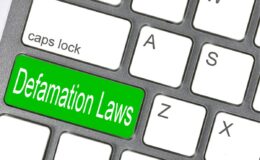New Rules for Juror Internet Use in Florida Criminal Cases
- By : Cbh
- Category : Social Media, Trial
The Florida Supreme Court issued an opinion last Thursday approving new standard jury instruction 1.001 (Introduction) which, according to the Comment, deals with jurors’ “communication with other and outside research.”
If there is any question as to the serious nature of juror internet use — either tweeting/Facebooking about service or researching issues in the case — that doubt should be resolved since the prohibition rule is now the first thing jurors hear in a case.
The new set of rules was enough of a landmark that the ABA Journal noted the development. The approval of these internet rules however, went without comment in the opinion.
The May 17 opinion is In Re Standard Jury Instructions in Criminal Cases – Report No. 2011-03.
The new rule is:
1.001 INTRODUCTION
To be given when jurors are in courtroom, prior to voir dire. In order to have a fair and lawful trial, there are rules that all jurors must follow. A basic rule is that jurors must decide the case only on the evidence presented in the courtroom. You must not communicate with anyone, including friends and family members, about this case, the people and places involved, or your jury service. You must not disclose your thoughts about this case or ask for advice on how to decide this case.
I want to stress that this rule means you must not use electronic devices or computers to communicate about this case, including tweeting, texting, blogging, e-mailing, posting information on a website or chat room, or any other means at all. Do not send or accept any messages to or from anyone about this case or your jury service.
You must not do any research or look up words, names, [maps], or anything else that may have anything to do with this case. This includes reading newspapers, watching television or using a computer, cell phone, the Internet, any electronic device, or any other means at all, to get information related to this case or the people and places involved in this case. This applies whether you are in the courthouse, at home, or anywhere else.
All of us are depending on you to follow these rules, so that there will be a fair and lawful resolution to this case. Unlike questions that you may be allowed to ask in court, which will be answered in court in the presence of the judge and the parties, if you investigate, research or make inquiries on your own outside of the courtroom, the trial judge has no way to assure they are proper and relevant to the case. The parties likewise have no opportunity to dispute the accuracy of what you find or to provide rebuttal evidence to it. That is contrary to our judicial system, which assures every party the right to ask questions about and rebut the evidence being considered against it and to present argument with respect to that evidence. Non-court inquiries and investigations unfairly and improperly prevent the parties from having that opportunity our judicial system promises. If you become aware of any violation of these instructions or any other instruction I give in this case, you must tell me by giving a note to the bailiff.
Comment
The portion of this instruction dealing with communication with others and outside research may need to be modified to include other specified means of communication or research as technology develops. This instruction was adopted in 2012.
Note, also, the new qualifications instructions, found on page 24-25 of the opinion:
QUALIFICATIONS INSTRUCTION
Many of you have cell phones, computers, and other electronic devices. Even though you have not yet been selected as a juror, there are some strict rules that you must follow about using your cell phones, electronic devices and computers. You must not use any device to search the Internet or to find out anything related to any cases in the courthouse.
Between now and when you have been discharged from jury duty by the judge, you must not provide or receive any information about your jury service to anyone, including friends, co-workers, and family members. You may tell those who need to know where you are that you have been called for jury duty. If you are picked for a jury, you may tell people that you have been picked for a jury and how long the case may take. However, you must not give anyone any information about the case itself or the people involved in the case. You must also warn people not to try to say anything to you or write to you about your jury service or the case. This includes face-to-face, phone or computer communications.
In this age of electronic communication, I want to stress that you must not use electronic devices or computers to talk about this case, including tweeting, texting, blogging, e-mailing, posting information on a website or chat room, or any other means at all. Do not send or accept any messages, including e-mail and text messages, about your jury service. You must not disclose your thoughts about your jury service or ask for advice on how to decide any case.
After you are called to the courtroom, the judge will give you specific instructions about these matters. A judge will tell you when you are released from this instruction. All of us are depending on you to follow these rules, so that there will be a fair and lawful resolution of every case.
NOTE ON USE
This instruction should be given in addition to and at the conclusion of the instructions normally given to the prospective jurors. The portion of this instruction dealing with communication with others and outside research may need to be modified to include other specified means of communication or research as technology develops. This instruction was adopted in 2012.


